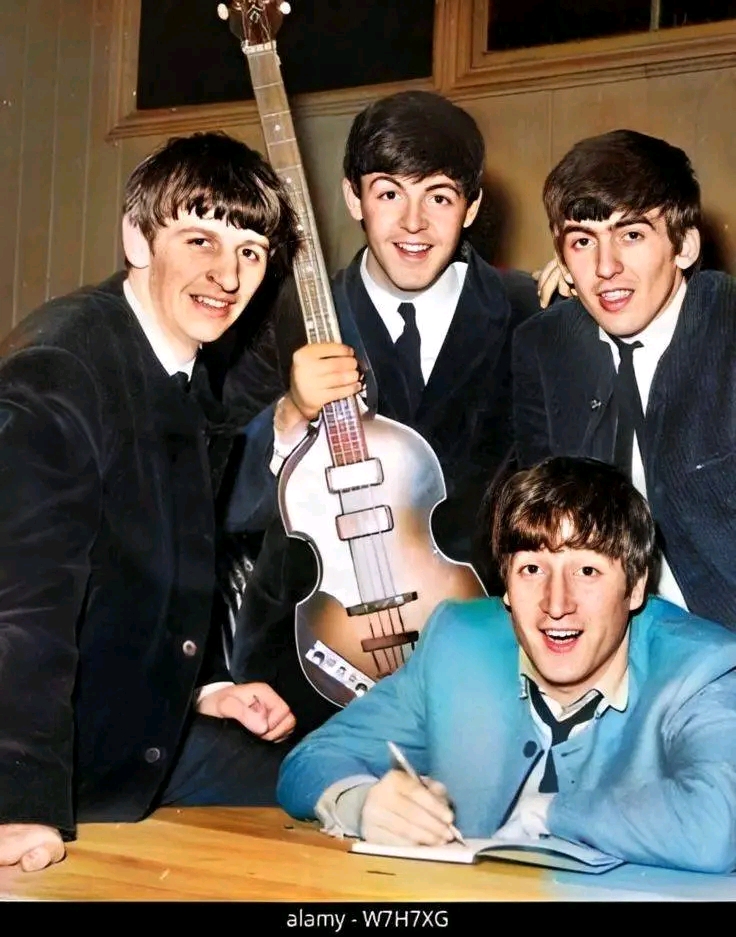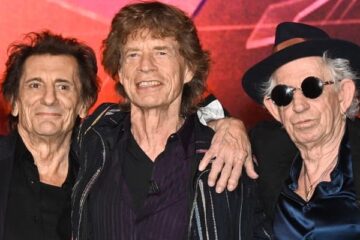Because they were together for a relatively short time compared to artists with bigger bodies of work, and because they were so beloved, it’s hard to believe that any Beatles songs can be somewhat unheralded. Yet that’s exactly the word we would use to describe “I Don’t Want to Spoil the Party,” an album cut from Beatles for Sale in 1964.
What is the song about? What was the division of labor in terms of writing the song? And how did it show off a slightly different side of the group? Let’s go deep inside “I Don’t Want to Spoil the Party,” from its creation to its meaning.
A Pressured Pace
Beatles for Sale might be The Beatles’ album with the quietest reputation. Part of that comes from it not receiving an American release. Instead, it was stripped for parts and its songs released on several different U.S. Beatles albums.
On top of that, it was a rushed record, a necessity considering the ridiculous pace The Beatles were perpetrating at that time. By the time they settled in to spend a few days recording Beatles for Sale, they had already completed an album, a movie, and several singles in the calendar year 1964, all while keeping up with their usual slate of live shows and television and radio appearances.
That’s likely why Beatles for Sale included several cover songs. On A Hard Day’s Night, the Fab Four’s earlier release in 1964, John Lennon and Paul McCartney wrote every song. They weren’t able to do that for the follow-up, but what they did deliver on Beatles for Sale demonstrated their growing skills as songwriters. This was a subtler batch of originals from the boys, exemplified by “I Don’t Want to Spoil the Party.”
“Spoil” Alert
What’s so striking about “I Don’t Want to Spoil the Party” is how it sounds far more like country music than it does pop or rock. The Beatles tended not to discriminate when it came to their influences. While many of their other country-flavored songs were covers, here they came up with an original that sounds sourced from Nashville rather than Liverpool.
George Harrison had a knack for bringing just the right touch to any song with his lead guitar work, and that’s certainly the case with the effort he gives on “I Don’t Want to Spoil the Party,” especially in the economical but punchy solo. Ringo Starr’s shuffling beat keeps things moving nicely. The vocal harmonies are interesting in their structure. In the verses, John Lennon, who sings lead, is multi-tracked with himself. But in the middle eights, Paul McCartney takes the high harmony part above him.
Lennon said he was mostly responsible for writing the song, one that clearly meant a little more to him than something that was tossed off on a whim, as he claimed in an interview (as reported by The Beatles Bible):
“That was a very personal one of mine. In the early days I wrote less material than Paul because he was more competent on the guitar than I. He taught me quite a lot of guitar really.”
What is the Meaning Behind “I Don’t Want to Spoil the Party”?
“I Don’t Want to Spoil the Party” does a wonderful job depicting what it’s like to be suffering through heartbreak at a gathering where everyone else is enjoying themselves. The narrator decides to remove himself from the situation instead of ruining everyone else’s good time: I don’t want to spoil the party so I’ll go / I would hate my disappointment to show.
In the second verse, he admits he tried to get with the spirit, but to no avail: I’ve had a drink or two and I don’t care / There’s no fun in what I do if she’s not there. He also lets on that he’s not really interested in the bigger group. Instead, he wants the company of only one person: If she turns up while I’m gone, please let me know.
The defeated tone of John Lennon’s voice as he sings this line suggests that it might be a long time coming before she returns to this shindig. At the time they wrote and released this song, the four men in The Beatles were pretty much as popular as anybody in the world. That’s why it’s amazing to hear them so convincingly sound like the odd men out in “I Don’t Want to Spoil the Party.”



